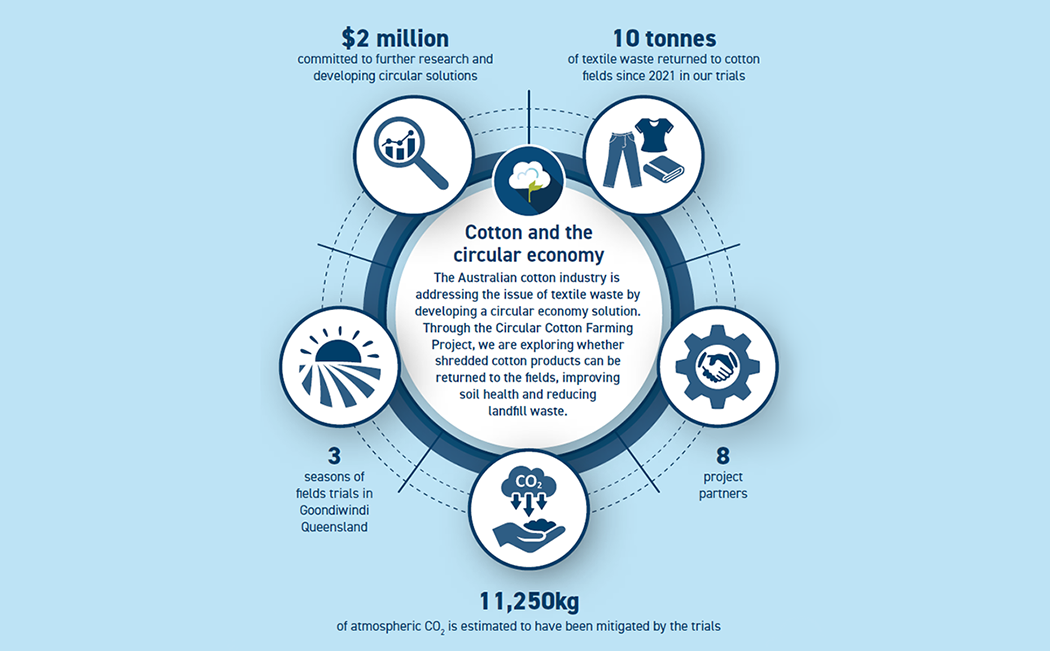Circularity
- Cotton is naturally biodegradable, renewable and recyclable
- The Australia Cotton industry is investing in research and projects to help find scalable solutions for cotton textile waste in Australia.
- Trials are underway on cotton farms to test whether shredded cotton at end of life could be returned to the field, benefiting soil health and creating a scalable solution to waste.
Cotton naturally fits within circular economy models for textiles. It is biodegradable, renewable and recyclable, and unlike synthetic fabrics, it breaks down fast and does not contribute to microplastic pollution. Cotton Australia and the Cotton Research and Development Corporation (CRDC) are working with key partners to develop a circular cotton industry right here on Australian soils.
The industry’s vision is to develop the circular economy for Australian cotton whereby the Australian cotton industry can provide lasting end-of-life solutions for cotton textiles.
As a partner in Seamless, the Australian fashion industry’s textile and clothing stewardship scheme, Cotton Australia is supporting the work to create a circular fashion industry by 2030.
This involves partnerships with brands, not-for-profit organisations, universities, and businesses to address the textile waste problem in Australia. Cotton Australia is also working with retailers to align priorities and find practical solutions.
CRDC is supporting these efforts with $2 million in research funding over three years. This funding will go towards seven key projects focused on finding scalable solutions for reducing textile waste in Australia, answering the technical and logistical challenges and ensuring that value can be delivered back to our cotton farmers and their communities.

Goondiwindi Circular Cotton Project
A collaboration between Coreo, the Queensland Government, local brand Goondiwindi Cotton, Thread Together, Sheridan, Cotton Australia and CRDC the Goondiwindi Circular Cotton Project aims to test whether end of life shredded cotton products can be returned to the field, offering both benefits to cotton soil health, and a scalable solution to textile waste.
By redirecting cotton textiles that are bound for landfill both here and abroad back into our cotton fields, we can create a closed loop for cotton production in Australia that helps to avoid emissions and enhance soil health.
The project is in its third year at Goondiwindi, and for two years in Gunnedah.
Find out more: Australian Cotton | Circularity Project

Other circularity projects
- Textile waste composting for sustainability – A study by the University of Newcastle and NSW Department of Primary Industries on composting's impact on the environment.
- Processing cotton fibre waste – Led by the University of Technology Sydney and University of New England, this project explores business models, greenhouse gas impacts, and commercial opportunities for fibre waste.
- Economic benefits of composting textile waste – RMIT is looking at the costs and best locations for composting facilities.
- Pathways for composting pure cotton waste – The University of Queensland is exploring how pure cotton waste can be composted and used on farms.
Find out more about how the Australian cotton industry is investing in research into developing circular solutions. Circular economy | CRDC
